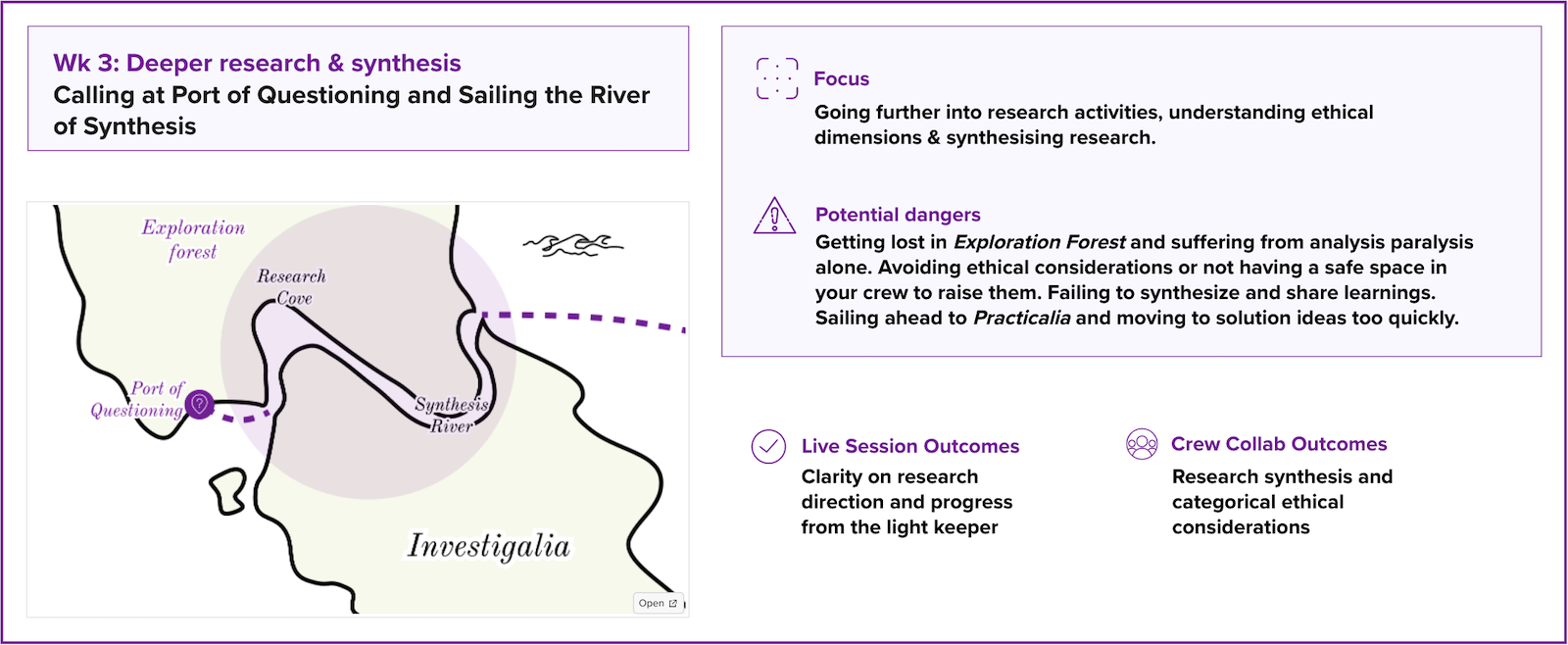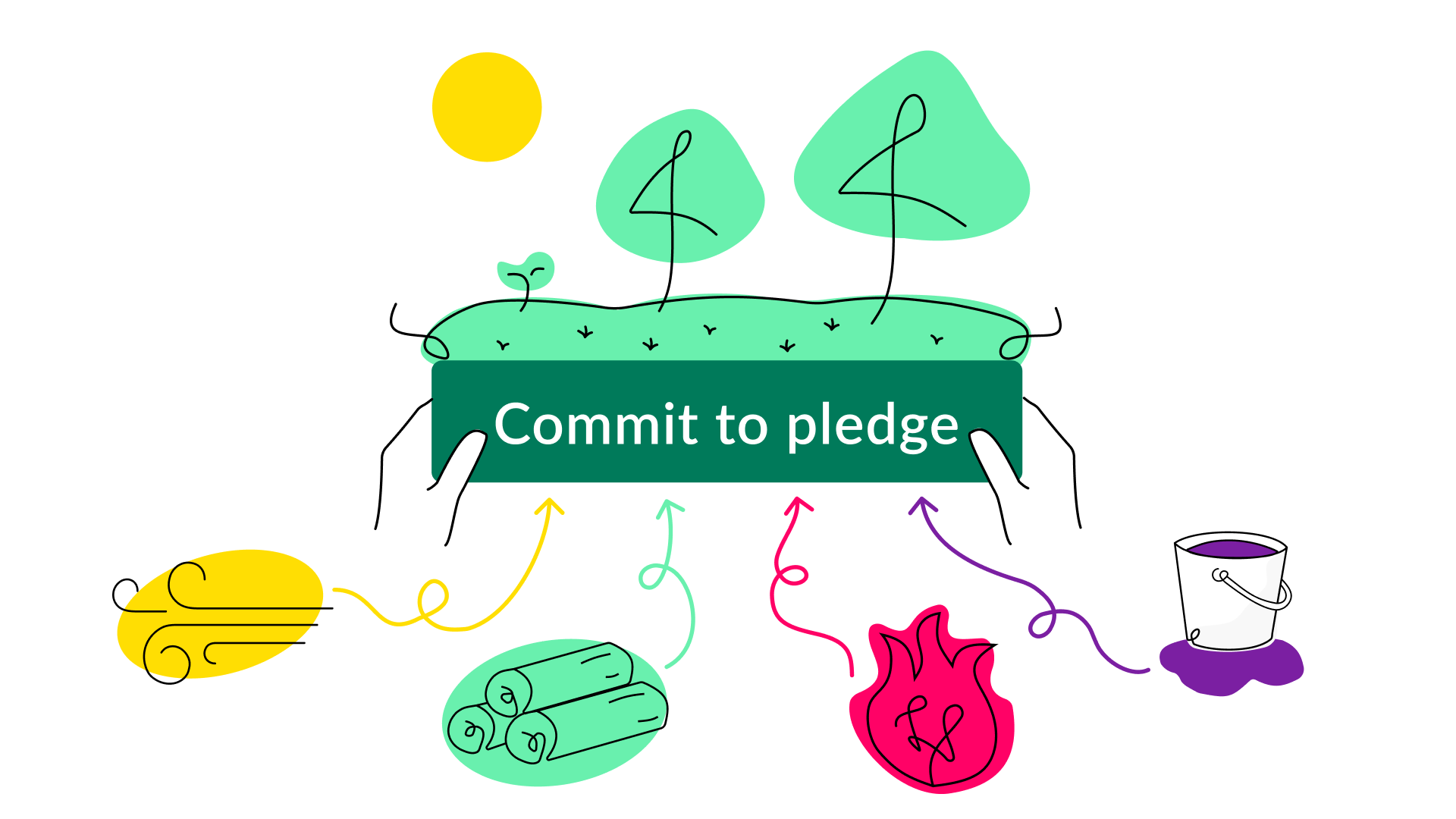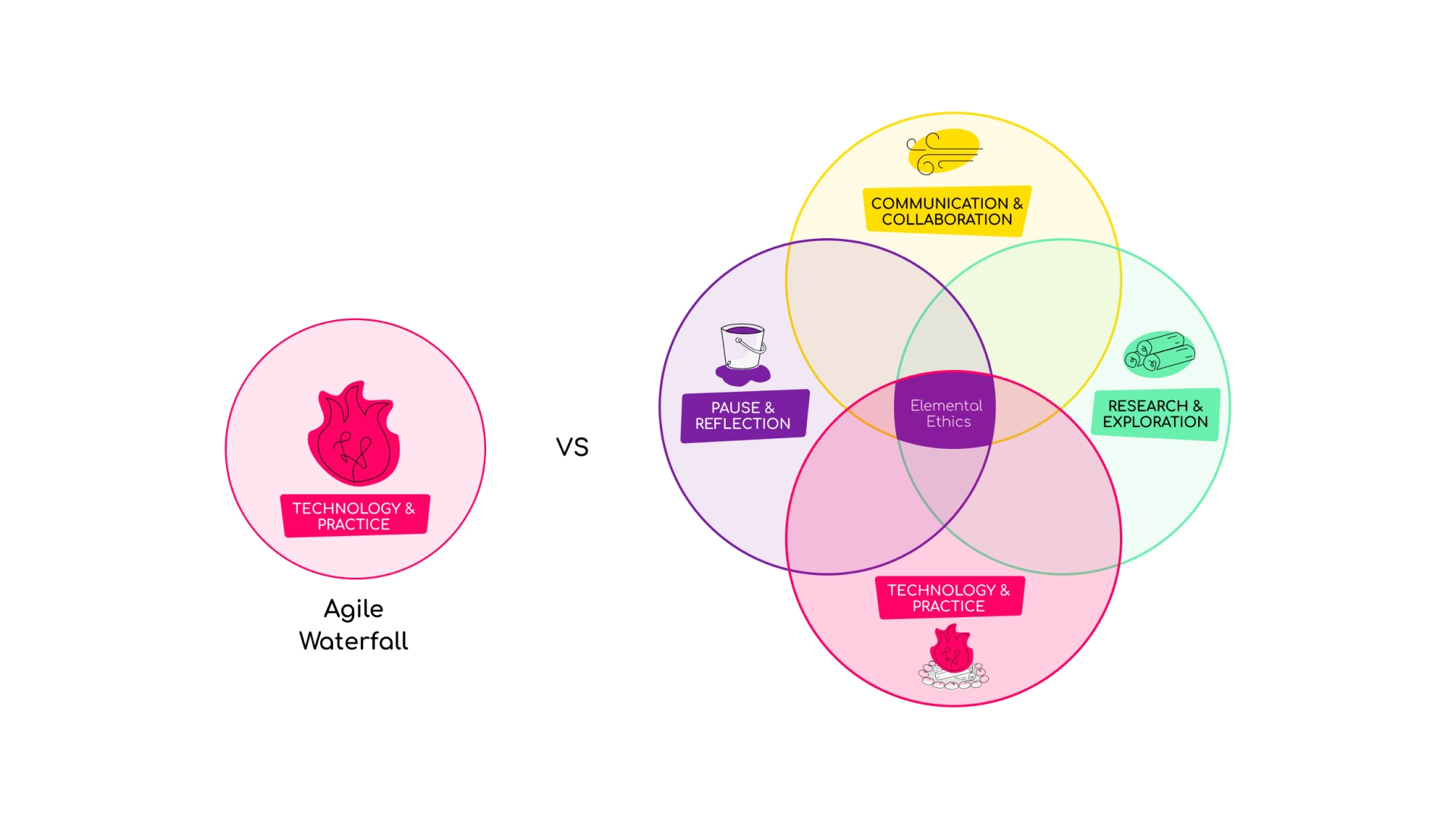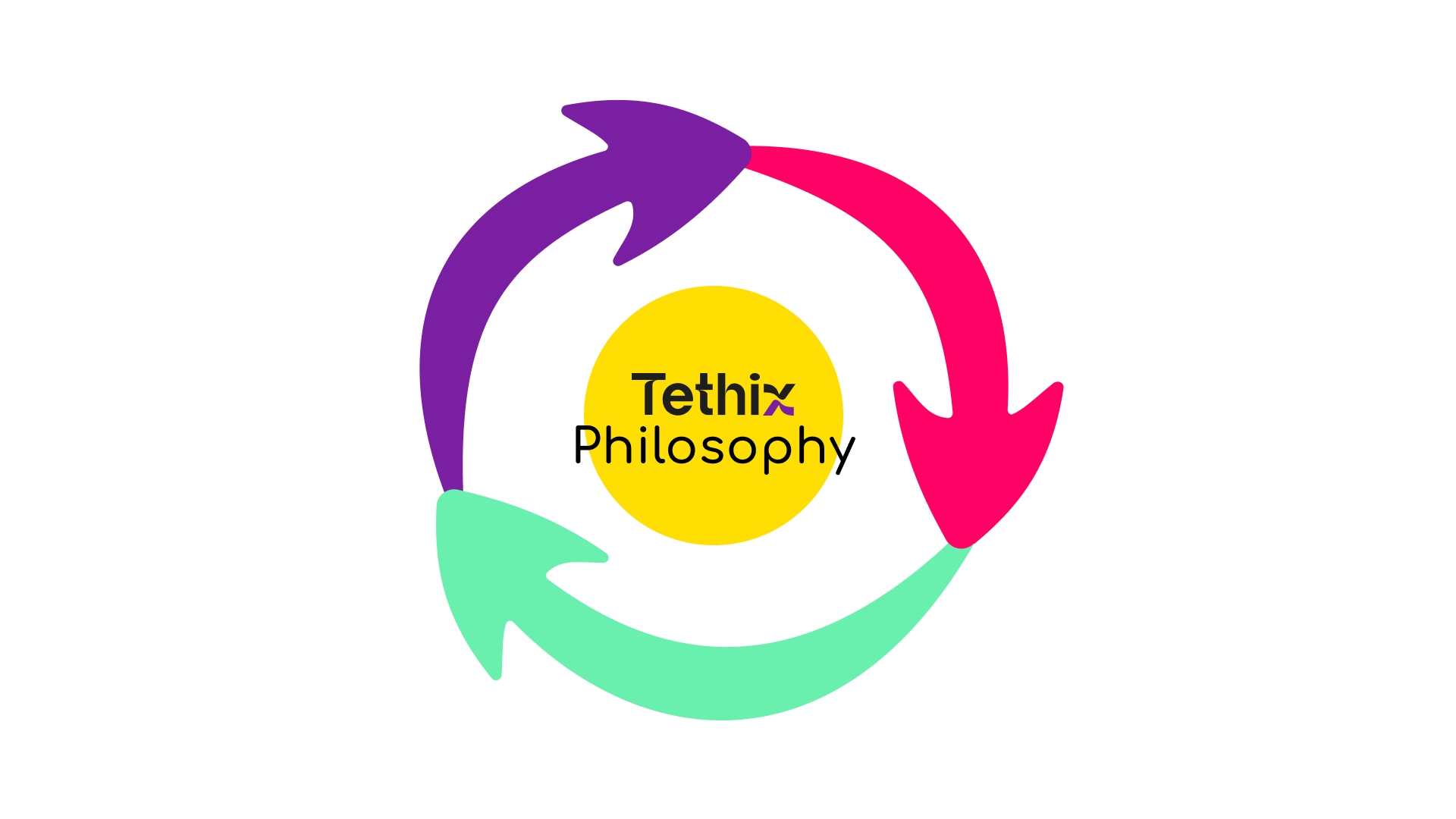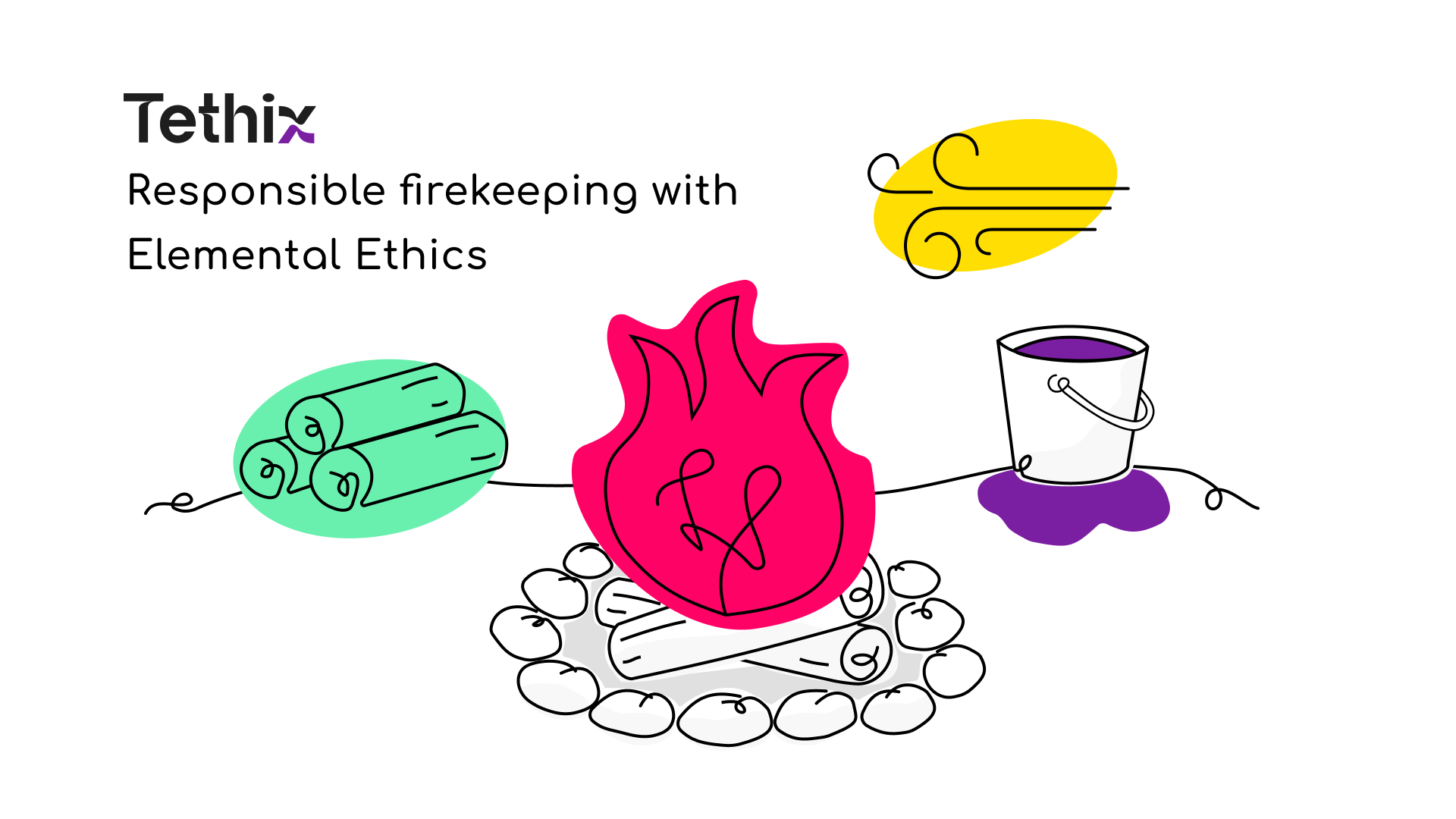A couple of weeks ago, our pilot fellowship started the first collaborative online learning experience in tech ethics, taking place in the Tethix Learning Archipelago. If you’ve missed last week’s introductory post, we invite you to read the pre-launch and week 1 overview for additional context on our approach and goals.
Week 2 overview: framing a challenge statement and sailing towards exploration
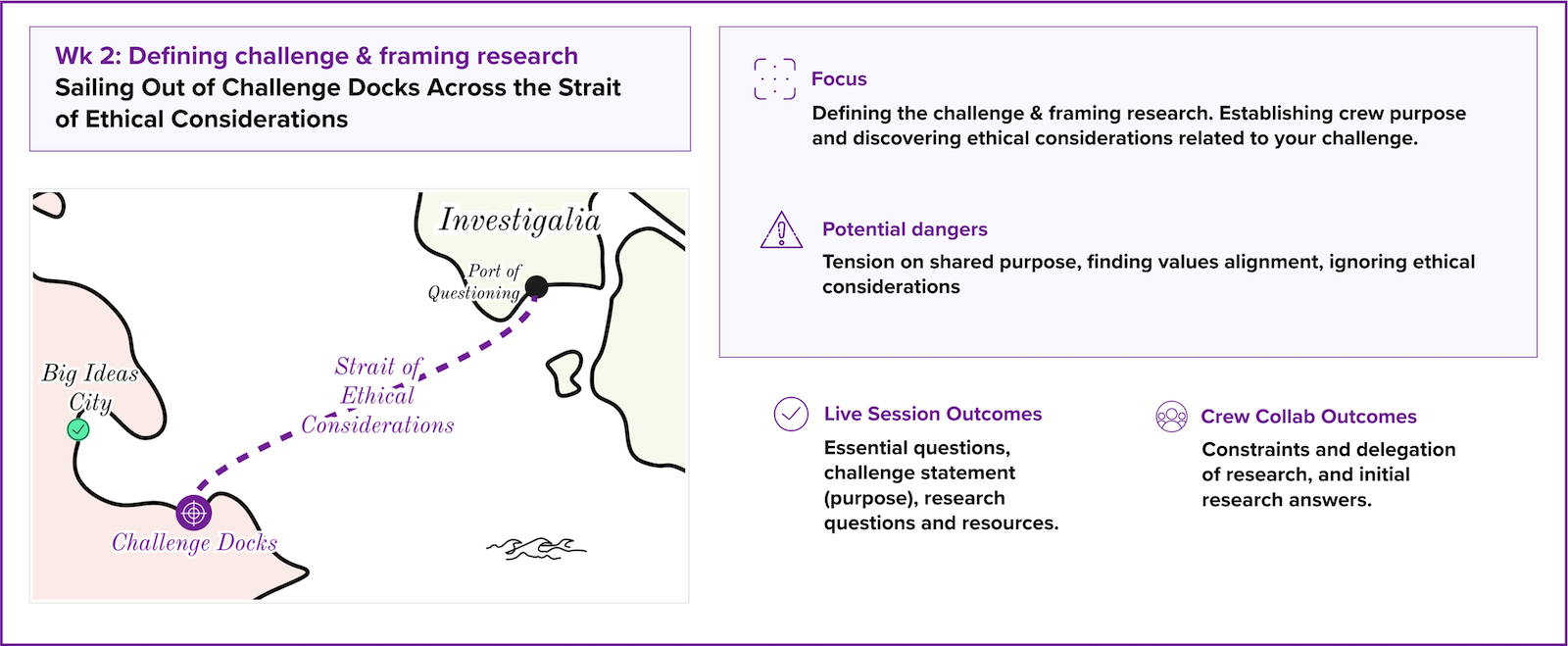
We kicked off week 2 on Tuesday, March 8, with a 3-hour live session for both our groups, each with two respective crews. The goals of this week’s session were quite ambitious. We expected each of the crew would be able to:
- Brainstorm essential questions related to tech ethics and select the most interesting to the crew.
- Use the selected questions to brainstorm the crew’s challenge statements and choose the one that will guide the rest of the journey – essentially the crew’s journey purpose.
- Generate research questions and activities to help the crew learn more about the chosen challenge.
The process and elements of this week’s session follow the Engage and Investigate stage of the Challenge Based Learning framework – on which our approach is based – pretty closely. In week 1, we used a Mural template to guide the live session over Zoom. The main difference for week 2 was that crews spent most of the time in breakout rooms, working together as a group. We provided additional tips on breakout rooms expectations and how to ask for help.

During the breakout sessions, we used sticky notes on Mural to guide their work when we felt additional guidance was needed, and we joined one of the crews in their breakout room when we saw the need for more hands-on guidance. Again, we didn’t want to interrupt their teamwork by crashing their breakout rooms directly. We invited all crews back to the main room on Zoom before each break and after each activity to discuss their process and difficulties and provide some general feedback.
In both groups, crews needed more time to select their essential question and frame their challenge statement. We adapted the session’s structure and timing to accommodate this, leaving most of the research framing as an additional crew activity for the week. We didn’t feel this was a significant change, given that a lot of guiding research questions emerged during other brainstorming activities within the live session.
For the remainder of week 2, crews had to work asynchronously to finish defining their guiding research questions and activities, delegate their research tasks, and prepare to present their preliminary findings during the next live session (more about this next week). One of the crews also attended our Thursday office hours – almost at full strength – to discuss their challenge and guiding questions. On top of the valuable feedback they provided, we also got a good insight into their group dynamics. Similar to the previous week, we also received excellent session feedback from a fellow’s perspective.
Week 2 preliminary observations: adapting to group dynamics
We knew this week’s session would challenge crews, but we assumed they would already be able to collaborate more fluently after having discussed ways of working and shared values on their own in week 1. However, it appears that the necessary ease and trust haven’t yet developed within crews. Participants feel that crew formation was pretty much random because they didn’t get the chance to meet each other before. Except for two fellows in one of the crews who have a pre-existing relationship, the crews are composed of complete strangers, with their main shared attribute just a general interest in tech ethics.
Another barrier for efficient collaboration at this point might be the diversity of the fellowship, both in terms of interests, professions, and expertise. While the diversity of perspectives is valuable, it does slow down the discovery of shared interests that is required when selecting essential questions and challenge statements. The essential questions and challenge statements that were generated were excellent; it just took crews more time to (reluctantly) reach consensus when they had to select one of the questions and choose the one challenge statement.
All these factors led us to explore ideas on how we might allocate some time before the journey to develop relationships or have participants form crews around a pre-defined challenge in advance – or a combination of both. It is difficult for a diverse group of strangers to connect and develop the trust needed for smooth online collaboration in such a short time.
Based on the experience with this week’s live session, we’re now rethinking the session in week 4 – during which crews have to propose a solution to their challenge – to allow more time for discussions. Next week’s live session will be a shorter check-in with the crews, so no additional adjustments are needed.
All crews struggled with making their challenge statements assertive and actionable. This might be due to cultural differences or the already mentioned lack of trust within the crew.
There are interrelated elements of the challenges between crews. But cross pollination across the fellowship has been limited. This could be due to time constraints, time zone differences, the perceived separateness of crews and/or lack of clear prompts to facilitate this. Sharing of ideas and insights across the whole fellowship will be explored in our next iterations.
This week’s live session required intense group discussions, ensuring everyone was included, and several decisions had to be made. This left participants exhausted, particularly in the Low Tide group, which takes place in the late evening for participants in Europe – one participant fell asleep, another reported being too tired for work in the morning of the next day, most were visibly tired during the session.
Additional preliminary observations about the tools we use
Given the limitations of Zoom breakout rooms, we explored some alternatives this week. Butter looks like an interesting candidate with its ability to observe breakout rooms, a more playful user experience that aims to reduce the awkwardness of online workshops, and a bigger focus on privacy. Obviously, changing our video conferencing tool mid-pilot doesn’t make sense, and we still need to perform more rigorous due diligence. Still, we’re keen on finding a replacement for Zoom for the following iterations.
On Mural, adding purple sticky notes – purple is our brand color – with additional guidance for crews as they work in their own breakout rooms was effective as a gentle nudge; we delete these additional guidance notes when we see that the crews are moving in the right direction and we received positive feedback on this approach.
Mural templates from live sessions were also used by crews during the week. After each live session, we export a PDF snapshot of the Mural template for the group and post it on the platform, but it seems like a good idea to keep the live session templates available, especially when some tasks still need to be completed.
So far, only one of the crews regularly uses their private discussion forum on the Tethix platform for coordination. Mural seems to be the main space for collaboration. Some crews also set up their private Slack workspaces, but we don’t have insight into how actively they’re being used.
Coming up next: research check-in and synthesis
Next week, our crews will spend more time on the island of Investigalia, exploring the wilderness of ethical resources and tools. To allow more time for research and synthesis, the live session in week 3 will be a shorter check-in with the light keeper, with the crews presenting their research progress and dilemmas.
